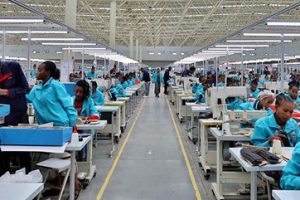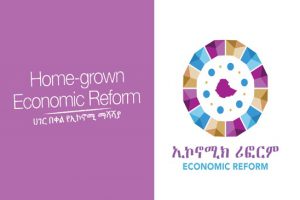
1.Introduction:
Most low income countries welcome a large flow of investment. Such flows contribute to their faster growth. The question is how the flow is influenced? In the case of extractive (oil and mineral) industries little is done to encourage the flow of foreign capital. Most foreign investment is attracted to oil and mineral sectors. In these sector, the investment climate is also conducive. Countries with rich natural resources are able to use their bargaining power to increase foreign investment in competitive markets.
How can we raise direct foreign investment in other sectors where our bargaining power is weak? The first step for ‘developed’ countries is to remove restriction on the flow of foreign investment to ‘developing’ countries. Some developed countries block flow of investment to developing counties for political reasons. Others promote it as a measure of assistance to poor countries.
2. Four areas of actions:
Actions to promote flows of investment to developing countries are presented below. These actions could emanate from both developed and developing countries.
2.1. Enhancing Investment Climate:
Measures must be taken by developing countries on ‘enhancing the general climate for all investment, foreign as well as domestic.’ Only a few developing countries recognize the contributions which private enterprise can make to economic development. The environment in some of these countries is not sympathetic to private entrepreneurship. Foreign investors sense this danger. Changing this environment requires specific policy actions, including investment promotions and incentives. Increasing the financial institutions and encouraging entrepreneurs are of the essence. Generally speaking, improving the position of the domestic private sector is an important step in improving the climate for foreign investment in the developing countries.
The cumbersome administrative procedures and inefficient decision making processes that are rampant in the developing countries hamper the flow of investment. Foreign investors take into account these impediments when planning investment in such countries. Obviously, these obstacles originate from underdevelopment itself. It is felt that many of these countries could streamline their procedures to ease the flow of investment. It is observed that foreign investment could generate politically explosive forces which need to be defused.
One way of doing this is developing countries. Such action involves the governments of developed countries. They offer incentives such tax advantages, guarantees against political and commercial risks, and special credit facilities to those investing in developing countries. The relative importance of these incentives differs from country to country. These incentives reinforce the favorable decisions of potential investors. Tax concessions and investment credits are required to improve the flow of investment. But, some steps are needed for this to happen.
Incentives, for example, could result from lowering fees charged by governments. Schemes should be created which provide credit facilities to firms which desire to invest in developing countries. These steps should be accompanied by changes in investment climate. It is recommended that developed countries strengthen investment schemes where possible. Tax concessions given by developing countries are useful to shield foreign investors from the impact of outdated tax system. This gives time to the developing countries to revise their own tax structure.
Developed countries provide ‘tax credit’ to companies that invest in developing countries. This ensures tax concession in host countries is not offset by tax increases in home extensive use of “Joint Venture” in investment. But this implies cost on foreign investors. Foreign investors should realize the political cost incurred if local investors are not accepted into partnership. There may be other ways of improving the relationship between developing countries and foreign investors. It is possible to reduce disruptive and costly conflicts between them.
They could make specific provisions when negotiating the terms of investment agreement. Mutual revision of the terms of the agreement after a period of project implementation is important. If no accord is reached during revision of the agreement, adequate compensation and freedom to repatriate such compensation should be underlined in the agreement. Such arrangement has the advantage of recognizing problems encountered during project implementation.
This gives the host country an agreed basis on which to change terms. It guarantees that these terms will not be changed ‘during the agreed period.’ Mutual revision provides an orderly procedure for reexamining foreign holdings than ‘planned nationalization.’ This also reduces foreign investors’ incentive to exploit the host countries. It also avoids host countries’ interests to assume ownership of foreign owned properties.
Positive attitude of foreign investors to the aspiration of host countries is crucial to harmonious relations. Their willingness to cooperate with development policies of host countries is important. They need not forget the excessive legislative and regulatory measures to which they are subjected in their home countries. They should, therefore, cooperate with developing countries in which they operate. 3 The governments of the developed countries have a role in improving the investment climate. In the past the super powers had intervened on behalf of their investors.
This had created hostility toward foreign investment in the developing countries. Respect for the sovereignty of the host country is useful for the creation of mutual confidence. Of course, we do not expect the governments of capital exporting countries to remain passive when the properties of their citizens are confiscated by host countries. However, their actions should not jeopardize long-term relations with the host countries. It is also believed that developed countries should separate their aid policy from dispute over foreign investment.
2.2 Removing Poor Investment Climate:
A major area where action is required is offsetting poor investment climate and limited markets in country. However, in the absence of tax credit in their home country, foreign companies have incentives to reinvest profits earned in the host country. This is a valuable 4 result for the developing countries. It is believed that profit reinvestment is a form of foreign capital which is attracted by tax incentives. The tendency of foreign investors to remit profit back to their country deters inflow of new capital to developing countries.
2.3 Multilateral Investment Insurance:
The establishment of a multilateral investment insurance scheme is helpful in reducing the impact of uncertain investment climate. A multilateral system is necessary to insure investment made by foreign companies; it is also useful for insuring multinational projects; it allows bilateral insurance programs to reinsure large risks. Multilateral investment insurance involves both developed and developing countries in taking insurance risks.
2.4 Orienting the flow of private capital:
International and bilateral institutions are important agents that stimulate the flow of private capital to developing countries. They help in project identification and investment promotion. Bilateral programs with this objective could finance surveys on investment opportunities. They could also publicize results of such surveys. But, these surveys may not be geared to the needs of investors. Survey results may be too general rather than specific and tailored to the needs of investors.
Bilateral program should devote more attention to induce small and mediumsized investors to take up projects in developing countries. They may provide these investors with technical assistance. Such bilateral programs are useful to attract investment into the developing countries. Both bilateral institutions and international finance institutions should appreciate their role in identifying new investment opportunities in the developing countries.
They should also bring together domestic and foreign partners in joint ventures. Because of their links with private sectors of both developing and developed countries, international finance organizations are the logical agents for project identification and investment promotion. They, therefore, have to be active agents for the flow of investment at the right time and place in a smooth manner.
3. Conclusions and Recommendations
3.1 Lack of recognition of the private sector: Some developing countries refuse to recognize the contribution of the private sector to economic development. They do not encourage private entrepreneurship. Foreign investors know well how domestic private investors are maltreated by their own government. This investment environment has to be changed, replaced with a policy to promote investment with the right incentives.
It is important to improve the climate for both domestic and foreign investment in the country. It is, therefore, recommended that steps be taken in consonance with national objectives to remove disincentives to domestic and foreign private investments.
3.2 Inefficient decision making:
This is rampant in the developing countries. It affects the flow of investment. This is a phenomenon of underdevelopment. Foreign investors know in advance such obstacles. Therefore, developing countries should ease the flow of investment. It is recommended that countries should preserve stability in their laws, regulation and procedures affecting foreign investment.
It is observed that foreign investment generates politically explosive forces. This has to be defused. Extensive use of “Joint Venture” in investment is one way of defusing these forces. The government agency should convince foreign investors about the political cost if local investors are not accepted as their partners.
3.3 Tax concessions by developing countries:
hese shield foreign investors from the effects of outdated tax systems. However, tax concessions to attract foreign investment should be applied carefully. It is recommended that developing countries should stop competing in tax concessions. Foreign investors are given tax credit in their home countries. However, where tax credits are absent in their home countries, they tend to reinvest their profit in the host country. It is, therefore, recommended that developing countries restructure Some Issues on the Flow of … their tax system to encourage profit reinvestment by foreign investors.
3.4 Revision of investment agreement:
After a certain period of project implementation, reconsidering the terms of investment agreement is necessary. It gives opportunity to host countries to protect themselves from unfair exploitation. The agreement should, however, reflect the right to compensation and repatriation. This avoids host countries’ intent to own or nationalize foreign owned companies. Such guarantees attract foreign investment to developing countries.
3.5 Insurance and orientation of investment:
The multilateral system can provide insurance to foreign investment. Bilateral programs could also reinsure large risks. Both multilateral and bilateral agencies are important agents for the flow of private capital to developing countries. They could help in the identification of projects and promotion of investment in these countries. They could provide technical assistance to both investors and host countries. The developing countries should develop their capacity to identify or examine the cost and benefit of foreign investments.
3.6 Relevance:
The above conclusions and recommendations may not be relevant to Ethiopia. My intent in writing this article is to identify some issues related to the flow investment to developing countries. However, the country may have encountered some peculiar investment issues not treated in this short paper. Readers are invited to comprehensively cover issues relevant to the country, but not treated here.
The Ethiopian Herald, Sunday Edition May 12/2019
By Getachew Minas





